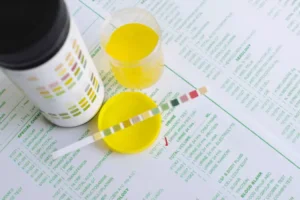
As a result, you may find yourself having frequent sore throat pains, catching colds and infections more often. Research studies on the association between weight gain and alcohol consumption have ended in conflicting results. In other words, weight gain isn’t inevitable, but you could still tip the scale up from drinking too much alcohol. Alcohol hepatitis can lead to liver failure and can also gradually damage the liver and lead to cirrhosis. Cirrhosis is when normal liver tissue is replaced by scar tissue, which causes the liver to lose its ability to function well.
Behavioral Signs of Alcoholism

There are many other potential causes of bruising, including injury, certain medications, and underlying medical conditions. If you’re concerned about bruising, talk to your doctor about other possible causes. Yes, long-term excessive alcohol consumption may lead to peripheral neuropathy, which can cause pain in your feet. However, nerve damage is sometimes permanent, and your symptoms are likely to worsen if you don’t stop drinking.
Medical Complications: Common Alcohol-Related Concerns
Learn the answer, as well as how to get help with medication assisted treatment for alcohol use, below. Consistently drinking over a period of time leads you to develop a tolerance to alcohol. If you suddenly stop drinking, this can lead to a number of uncomfortable alcohol withdrawal symptoms.
What Is The Most Popular Program For Recovering Alcoholics?
Erin is a Nurse Practitioner with 8 years of experience in midwifery and women’s health. She has spent the past 5 years specializing in the treatment of opioid and alcohol use disorders. Finally, a person with an alcohol use disorder will likely give up other activities, because their focus is on drinking.
- Drinking a lot on a single occasion slows your body’s ability to ward off infections–even up to 24 hours after getting drunk.
- After two to three weeks of abstaining from alcohol, fatty deposits disappear and liver biopsies appear normal.
- When that happens, the person is seemingly functional and appears normal to other people.
- Lifelong abstinence can improve liver function, but the permanent and severe damage from cirrhosis might mean that the person needs a liver transplant to survive.
- Erin is a Nurse Practitioner with 8 years of experience in midwifery and women’s health.
- This CME/CE credit opportunity is jointly provided by the Postgraduate Institute for Medicine and NIAAA.

Once the alcoholic liver disease progresses, its symptoms become easier to recognize. Alcoholic hepatitis usually progresses to cirrhosis if a person continues bruising and alcoholism to drink alcohol. Hepatitis heals in a person who stops drinking alcohol, but any cirrhosis does not reverse.
- Genetic, psychological, social and environmental factors can impact how drinking alcohol affects your body and behavior.
- Heavy alcohol use raises the risk for myopathies and fractures, whereas even low levels of alcohol intake increase the odds for recurrent gout attacks.
- Because alcohol is a potent diuretic, it can quickly dehydrate you, leading to the characteristic symptoms of a hangover, including a throbbing headache.
- Heidi Moawad is a neurologist and expert in the field of brain health and neurological disorders.
What Is Alcoholic Neuropathy?
Alcohol intolerance can cause immediate, uncomfortable reactions after you drink alcohol. The most common signs and symptoms are stuffy nose and skin flushing. Alcohol-related neuropathy is a condition caused by consuming large amounts of alcohol over a long period. The toxic effects of alcohol may damage your peripheral nerves, which play a role in movement and sensation. There’s no exact timeframe for how quickly alcohol-related neuropathy develops. However, stopping consuming alcohol sooner can help stop the progression of nerve damage.

Do You Bleed More When You Drink?
When a person gets a bruise, some sort of injury crushes blood vessels, but the skin does not break and cause external bleeding. What all of this means is that people who live with an alcohol use Alcoholics Anonymous disorder are likely to consume large quantities of alcohol. While some people may have just a drink or two on special occasions, people with an alcohol use disorder may lose control of their drinking, and consume ten or more drinks, for example. They may have such a high tolerance that they do not show any overt signs of intoxication, despite drinking large amounts. Hence, drinking alcohol makes it harder for your immune system to gear up and mount a defense response against invading pathogens and viruses.

- Alcoholic hepatitis is a severe syndrome of alcoholic liver disease.
- Finally, one potentially serious cause of alcohol and bruising is alcohol liver disease.
- Many people with alcohol use disorder hesitate to get treatment because they don’t recognize that they have a problem.
- There are normally no symptoms, and alcoholic fatty liver disease is often reversible if the individual abstains from alcohol from this point onward.
- More resources for a variety of healthcare professionals can be found in the Additional Links for Patient Care.
At Compassion Behavioral Health, we offer a range of therapies and treatments designed to help individuals overcome the grip of alcohol and start on the path to a healthier, happier life. One of the key aspects of alcoholism is the inability to control or stop drinking despite negative consequences. This can lead to a range of problems, including impaired judgment, relationship issues, financial difficulties, and even legal troubles. The compulsive need for alcohol can become all-consuming, overshadowing other aspects of an individual’s life.











